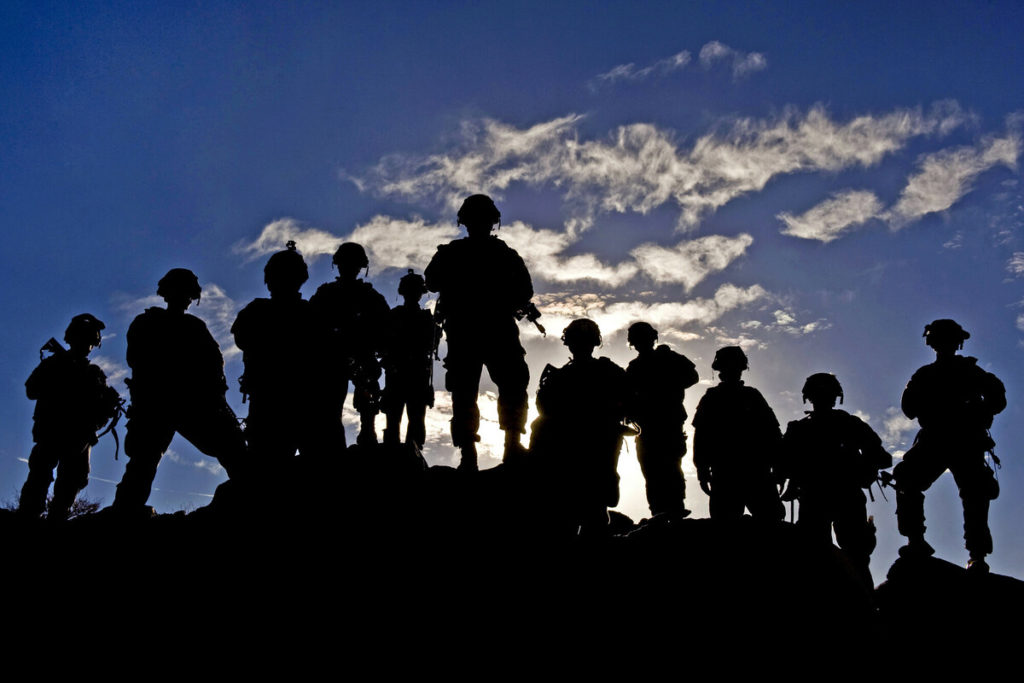For Sofia Matta, MD, the path to providing clinical care to Veterans and members of the Military was marked by two national tragedies that altered her perspective. First, as a medical resident in New York City in 2001, she witnessed, firsthand, the 9/11 terrorist attacks on the World Trade Center and the profound trauma endured by first responders; then, in her hometown of New Orleans in from 2005 to 2006, following Hurricane Katrina, she worked in an inpatient rehabilitation setting with Navy and Coast Guard active-duty Service Members.
Now, as senior director of medical services at Home Base, Dr. Matta focuses on Military and Veteran healthcare, treating everything from post-traumatic stress disorder and traumatic brain injuries to chronic pain and substance use disorders. She and her team are studying the concept of a patient’s “HealthSpan” — the period of life spent in good health, free from chronic diseases and disabilities associated with aging — to address not only longevity, but also quality of life by prioritizing prevention, early detection and lifelong wellness. The HealthSpan framework moves beyond the limitations of a traditional medical model by adopting a proactive approach to enhance quality of life, mental wellness and brain health.
Meeting a National Need
“Witnessing the bravery of first responders, the trauma and loss, and the immense recovery efforts following the 9/11 attacks deepened my commitment to service,” says Dr. Matta. “That commitment continued during my work in an inpatient active-duty rehab unit in New Orleans after Hurricane Katrina, and later through my training in medical acupuncture.”
At the inpatient rehabilitation center in New Orleans, Dr. Matta treated many patients with opioid use disorder who had underlying pain conditions — many of whom had been prescribed pain medications to treat these conditions and developed a dependency. “That’s why I pursued acupuncture,” she says. “I wanted to learn how to help treat their pain without medication.”
These experiences connected Dr. Matta with active-duty colleagues and ultimately led her to hold positions at United States Army Fort Drum and its Defense and Veterans Brain Injury Center in New York, as well as Naval Hospital Camp Pendleton and its Intrepid Spirit Center in California. Today, Dr. Matta oversees all medical programs at Home Base, including nursing, physical therapy and rehabilitation and psychiatry. She also provides acupuncture to nearly every Veteran who comes through Home Base’s intensive outpatient programs. “My job is a mix of leadership, collaboration and hands on care, all aimed at improving the health and lives of those we serve,” she says.

Dr. Matta’s dedication also has personal roots: her grandfather served in World War I, and four of her uncles served in World War II and Korea — two in the Army, and two in the Air Force.
“Today, at Home Base, I bring together my expertise in psychiatry, addiction medicine and brain injury medicine to provide care for active-duty Special Operations Forces, Veterans and their families,” she says. “It’s both a calling, and an honor.”
A Vision for the Future of Home Base
Dr. Matta’s plans for the future of Home Base include making care for Veterans as far-reaching and accessible as possible, treating not only the Veteran but their loved ones as well, and introducing cutting-edge treatment modalities.
“The challenge for many Veterans is access to care,” she says. “Whether they are experiencing a barrier to care that is geographic, bureaucratic or another reason, we are working to eliminate those barriers and provide care that we know to be effective — to all Veterans.”
Home Base has already expanded to reach Spanish-speaking communities in Florida, Native American communities in Arizona and has collaborated with delegations from Ukraine, Australia, Israel and the United Kingdom. Home Base provides care to Veterans that is not readily available elsewhere, and at no cost to patients — that’s where the philanthropic community comes in. Thanks to private funding, Home Base is able to fly Veterans to their Boston clinic, provide accommodation in a nearby hotel and deliver 70 hours of wide-ranging clinical treatment within two weeks. Home Base achieves program completion rates above 95%.
“Veterans Affairs hospitals do great work, but it’s often one appointment every week or two, and that model doesn’t work for everyone,” Dr. Matta says. “Home Base offers something different, providing all-encompassing care, even supporting family members –— including spouses, partners and youth.”
Dr. Matta explains that in the Military, it’s rare for family members to be involved closely in the care of Veterans and Service Members. At Home Base, however, Dr. Matta and her team involve family members directly in care, inviting them to participate in large portions of their clinical programming with their loved one. “We also define ‘family’ broadly — it could be a friend, sibling, partner or battle buddy,” she says.
Dr. Matta and her team also aim to expand their use of next-generation interventions, like FDA-approved neuromodulation devices, including accelerated transcranial magnetic stimulation, and, eventually, psychedelic-assisted therapy, starting with ketamine. They’ve seen promising outcomes with the use of psychedelic-assisted therapies, specifically in a group therapy setting, which provides participants with a strong sense of community and camaraderie as they heal.
“We’ve found that Veterans often do better in group therapy settings and crave that connection,” she says. “By integrating clinical innovation with world-class expertise, we aim not only to help our patients live longer, but to ensure they live better.”
To learn more about how you can support Home Base, click here.




